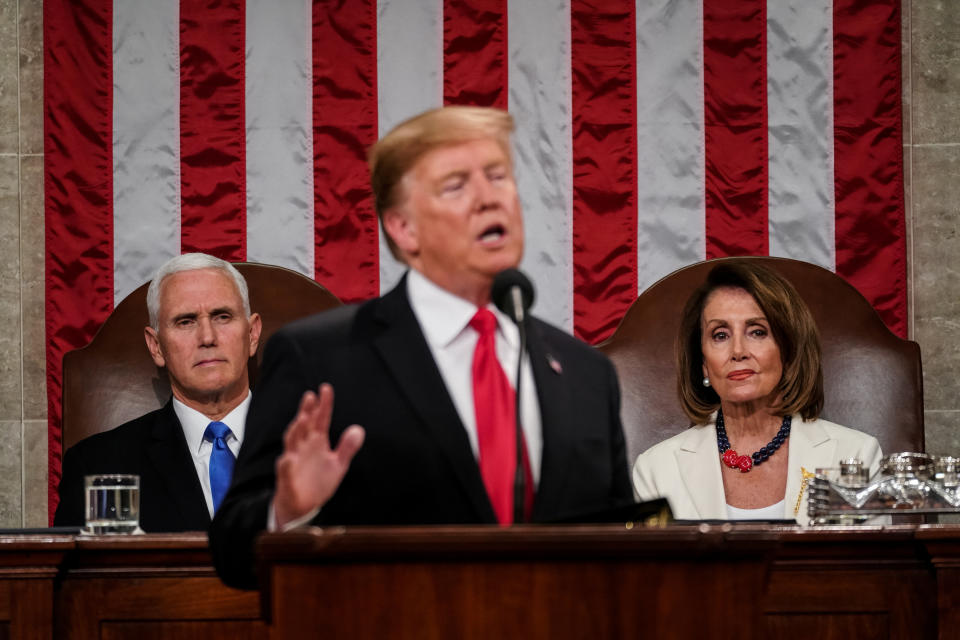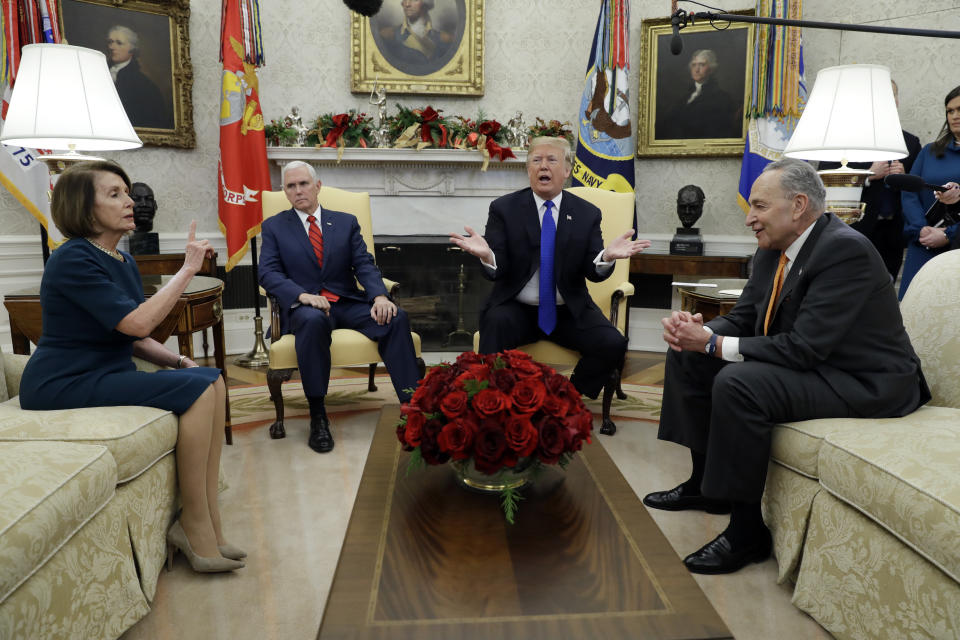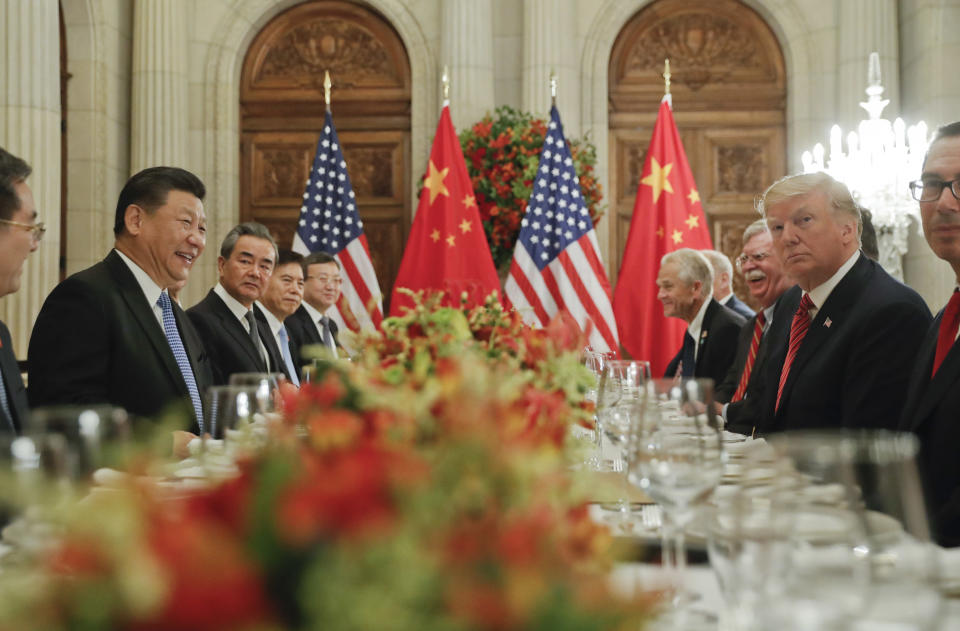Americans see politics as the biggest economic threat: survey
Politics has dominated the American news cycle for the past three years, and it’s now dominating people’s economic concerns.
According to a recent survey of 1,000 individuals conducted by Bankrate.com, 44% of Americans say the political environment in Washington, D.C. is the biggest threat to the economy over the next six months.
The next most popular choices were terrorism and political/economic developments — both at just 14%. Other named threats included a decline in the stock market (11%), interest rate decisions (8%), and “something else” (2%).

‘It’s absolutely at its zenith’
The findings show “there’s some collateral damage from the high degree of anxiety and noise that Washington is producing,” Mark Hamrick, senior economic analyst at Bankrate.com, told Yahoo Finance.
During the government shutdown, a product of discord between the Trump administration and Democratic members of Congress, economic effects were seen across the nation. Hundreds of thousands of federal employees were furloughed, IPOs were delayed, and farmers were unable to receive their government loans — just to name a few. Overall, the partial shutdown cost the U.S. economy at least $11 billion.
While it’s not clear if the shutdown played a role in the respondents’ sentiments, it did raise some questions.
“There have obviously been periods of high discord in the political environment in the U.S,” Hamrick said, citing tensions during the ‘60s and ‘70s. “But in the last couple of decades, it’s absolutely at its zenith.”

‘There’s some water that’s being taken on’
So what is it about politics that concerns people the most?
“There are a million stories in the naked city, right?” Hamrick said, “To the degree that everyone may have their own personal reasons for feeling this way, I think there are some broad brushstrokes that can apply.”
He cited trade uncertainty and tax cut dissatisfaction as some potential factors, along with “tribal politics.”
A Pew Research Center survey indicated that 49% of Americans disapprove of the Tax Cuts and Jobs Act, and that fewer Republicans “strongly approve” of the law than they did in January 2018.
And, as it stands, the U.S. is currently engaged in trade negotiations with China, after nearly a year of a trade war involving tariffs on major exports. The U.S. trade deficit in goods reached a record $891.3 billion 2018. The effects can spill over to the average American consumer.

“We know that businesses and consumers pay the costs of tariffs,” Hamrick said. “We know there’s been some collateral damage caused to U.S. farmers, steel producers, the housing industry, and the automobile industry. Even those who may be predisposed to supporting the president for seeking to improve the U.S. trade position vis a vis China, in the near-term, there’s some water that’s being taken on and those have real impacts on both people and businesses.”
Yahoo Finance previously reported on two studies focused on the cost of the tariffs. One study found that “Trump tariffs cost American consumers and producers $68.8 billion per year in high costs and lost output, with the tariffs paid entirely by Americans.” The second indicated the tariffs have generated nearly $3 billion per month in new taxes.
“You still don’t have the NAFTA successor approved by Congress, and obviously we’re waiting for the would-be resolution of U.S.-China trade,” Hamrick said. “We don’t have a high degree of confidence that tariffs will go away just because of the prospect of an agreement with China.”
‘Tribal politics’
Then, there is the aforementioned “tribal politics.”
“Obviously we’re living in a time of a high degree of political polarization,” Hamrick said. “So, where people may disagree on the outlines of a policy debate or be on either side of a controversial question, what they might be able to agree on is the fact they’re somehow dissatisfied with the process of the situation.”
For this survey in particular, 49% of Republicans named politics the biggest economic threat, versus 45% of Democrats and 42% of Independents. That’s not too stark of a contrast.
“I try to keep my shock level at a minimum with these things, because ultimately, these surveys have to tell their own stories,” Hamrick said. “But, to the degree that we did register” that politics was the top economic concern, that is “obviously something that’s significant.”
READ MORE:
Trump border closure would be ‘like decreeing that it should stop raining’
Expert: 'We are worse off as a world' amid Trump's trade war
Follow Yahoo Finance on Twitter, Facebook, Instagram, Flipboard, SmartNews, LinkedIn, YouTube, and reddit.

 Yahoo Finance
Yahoo Finance 
